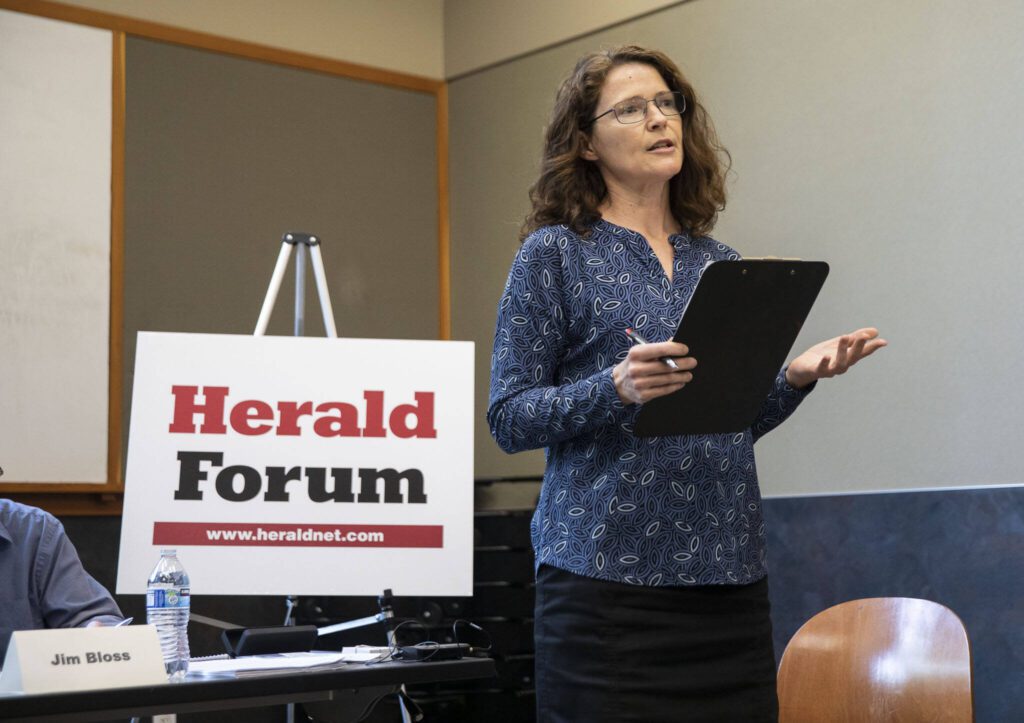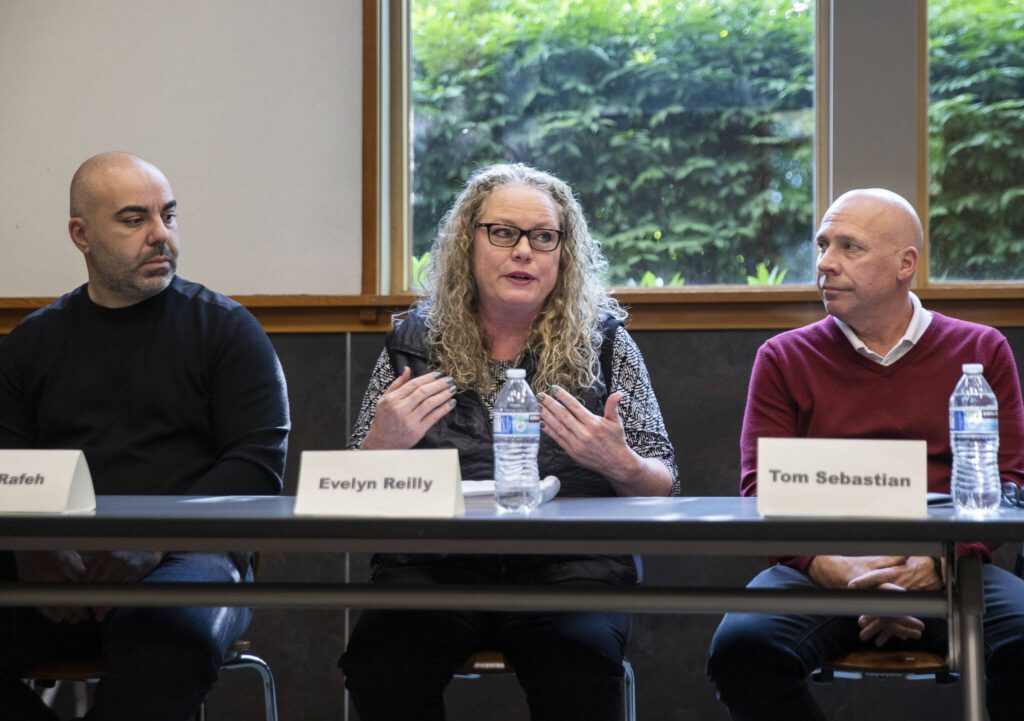SNOHOMISH — Mental health staffing is at a crisis level, according to Tom Sebastian.
“What that is creating across the state are decisions we need to make about limiting access to care,” the CEO of Compass Health said Wednesday night at a forum in Snohomish hosted by The Daily Herald on mental health access.
At Compass Health, he said, that has meant limiting access to outpatient therapy.
Sebastian was one of five panelists at the event moderated by Herald health reporter Joy Borkholder. Panelists included Jim Bloss, a member of the National Alliance on Mental Illness, and Rami A. Rafeh, vice president of provider strategy and collaboration at Premera Blue Cross.
Clinical social worker Melissa Morrissette and Dr. Evelyn Reilly, a neuropsychologist at Western Washington Medical Group, added perspectives from service providers.
They discussed workforce shortages, insurance coverage and options for people struggling, among other topics.
Part of the staffing problem: Hiring is more difficult now, Reilly said.
“We have basically posted job listings” for months on end, she said, “at huge cost, and nobody’s applying. It’s shocking. It’s never happened before.”
Telehealth and COVID-era delays in training programs have likely played a role, Reilly said. Mental health care providers also tend to make less money than physicians, meaning fewer people go into the field.
Insurance companies will also reimburse mental health providers at vastly different rates for the same service, Reilly said.
Tackling the problem at Premera, Rafeh said, meant spending months developing an understanding of mental health needs.
At one point, Premera created a “secret shopper” program, he said.
“We found that we called sometimes 14 to 15 clinicians and were not able to get a call back,” Rafeh said.
Part of Premera’s solution is working with primary care clinics for “an overall wellness approach,” he said. He highlighted the UW Collaborative Care model that incorporates mental health treatment into primary care.
Bloss noted, however, that lack of staff is not the only thing affecting access. Factors run “the gamut from the need for long-term residential treatment, to crisis beds and social determinants” of health, he said.
People looking for help can start by calling the 988 crisis line, Bloss said. Another resource is your local branch of NAMI. If all else fails, he said, call a behavioral health ombuds, in what’s now known as the state Office of Behavioral Health Advocates.
He also suggested people become politically active to advocate for mental health care.
Panelists disagreed about telehealth as a solution. Bloss said it was preferred more by providers than patients and cautioned that a personal connection is lost during virtual visits.
Others, like Sebastian, said telehealth could improve access to services. He acknowledged, though, that opportunities for in-person care were also important.
Morrissette, the clinical social worker, also noted providers can be licensed in multiple states, which means those open to telehealth can get care from someone in another state if they’re open to it.
At the end, audience members submitted questions to the panel. For the final question, panelists were asked to describe a utopian mental health care system.
For Sebastian, a perfect system starts with early childhood education.
If we can get toddlers ready for kindergarten and prepare them to read at grade level by third grade, “we absolutely know the trajectory of their life changes,” he said.
Morrissette agreed that focusing on early learning was important.
“Working with very established and prominent adults and they don’t have the skills” to take care of their mental health, she said. “They were never taught.”
Others mentioned “holistic” systems that aren’t fragmented.
“In Western culture, unlike most cultures, we try to separate out” physical and mental health, Reilly said. “That’s nonsense. It’s all interconnected.”
Sophia Gates: 425-339-3035; sophia.gates@heraldnet.com; Twitter: @SophiaSGates.
Talk to us
> Give us your news tips.
> Send us a letter to the editor.
> More Herald contact information.




























